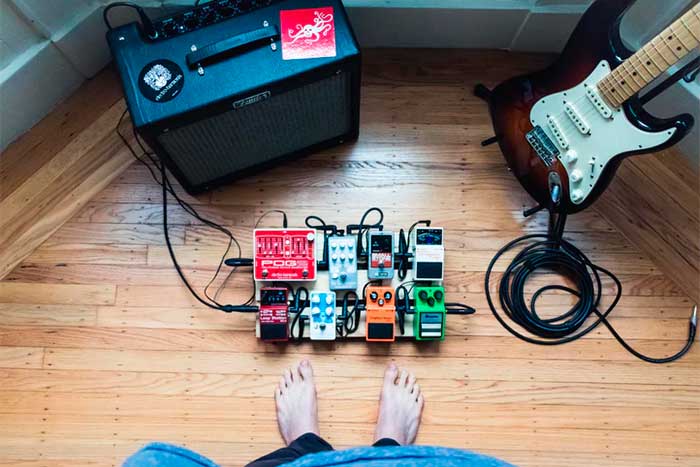
Music is a huge part of our lives. Whether you’re listening to music as you work, or attending concerts with your friends, music has the power to make everything seem better. But what if the music was not just something that we listened to? What if the music was also a career choice for many people out there? In this article, I will talk about different music careers and how they might interest you!
Music teacher
Music teachers can teach music at pre-schools, elementary schools, high schools, and colleges. They will also work in music stores where they sell musical instruments. Music teachers are music professionals who help students with their musical studies. A music teacher’s responsibilities include teaching music theory to the student as well as encouraging them to continue practicing on their instrument of choice even when it gets hard!
A music teacher is usually required to have a Bachelor’s degree in Music Education or a related field from an accredited college/university (or higher). The minimum requirements for certification vary by state but most states require that you pass a basic skills test and complete additional coursework within your area of specialization before receiving official certification. Teaching experience may also qualify you for music teacher certification.
Mobile DJ
Mobile DJs are music professionals who provide music to a live audience as well as at events. Mobile DJ services can be provided during any event, such as weddings, birthdays, and private parties. A mobile DJ is someone who provides music for the public in an interactive way through performing or playing music on turntables (CDs), digital media players (MP-players), or computer software. These artists also have the skills needed to play musical instruments while mixing their own tracks with other songs from different sources. They often serve engagements where traditional bands might not fit because of space limitations and they may operate out of a van instead of needing large performance equipment like drums and guitars available on site.
If you are interested in becoming a Mobile DJ, you need to understand music and be willing to invest in a mobile DJ setup. Some additional advice on becoming a mobile DJ can be found on Mobile DJ Basics, but you should have in mind that the necessary music-mixing equipment, such as turntables or CD players, will cost you between $500-$2000 on average for an entry-level setup. Mobile DJs often charge about $150 per hour with additional fees associated based on travel time and other variables.
Your music knowledge will customize your services as well because some people may want more of a hip-hop vibe while others are looking for more of a rock rundown playlist during their event.
Mobile DJs also have the ability to create music videos and short films for their clients. They may use Microsoft Office or other software applications in order to write music, design layouts, record voiceovers, edit video footage with transitions and graphics as well as add music into a video sequence. These professionals must know how to work at night because they are often needed after normal business hours. Mobile DJ companies offer many services such as weddings ceremonies, speeches during corporate events, school dances, birthday parties, and more.
Music producer
Music producers work in a studio to put songs together, ensuring that the artist’s vision comes out on record. Typically they are most involved with recording and mixing but may also have input into songwriting or other production aspects of music. Producers make sure everything is synchronized so the different sounds come at just the right time, for example making sure vocals don’t drown out guitar solos (or vice versa). There can be many levels of producers: one who only helps with arrangements, and another level would be more like an executive producer overseeing all facets of the project from start to finish while working closely with artists.
The most important thing music producers do is take a song from demo form to the final product. Music industry experts are predicting an increase in producer opportunities due to the number of changes sweeping across its current landscape.
Sound engineer
Sound engineers are the music producer’s, right-hand man. This might not sound like a music career that would suit your personality, but think again!
They are usually required when recording music or other audio such as speech, dialogue, or music played by an orchestra. Also, they have many responsibilities during this process from setting up microphones and recording equipment to dealing with any technical problems that may arise while recording music lives at concerts which require quick responses on their part including finding solutions quickly when things go wrong.
Furthermore, they usually work in music studios, recording audio for music videos and soundtracks. They also have to make sure that the recordings are not only accurate but also at a good balance with each other so they can edit them later on if needed.
Sound engineers need to know various types of equipment such as effects processors which apply special sound treatments during mixing and mastering. In order to get this knowledge, you will be required to attend music production courses or take some time out of your busy schedule and teach yourself about these things while reading books on the subject matter.
Songwriter
If you’re a songwriter, your music covers various genres. Lyricists and music producers work with songwriters to help them produce the correct music for their lyrics. Music producers also use melody, harmony, rhythm, and arrangement to create the final product of a song. As one of the most important people in any music project, they take charge of everything from instrumentation and sound effects to production techniques that are used in recording or mastering songs.
These days many film scores have been recorded using new technology such as digital orchestras, which is an excellent career choice for someone who loves both music and technology.
The world of music is a large one. There are many different types of jobs and skills that all stem from the same love for sound, but each person will have their own career path they enjoy more than others. We hope this article has helped you to understand what some of those paths may be like and how much work it takes to achieve them!


